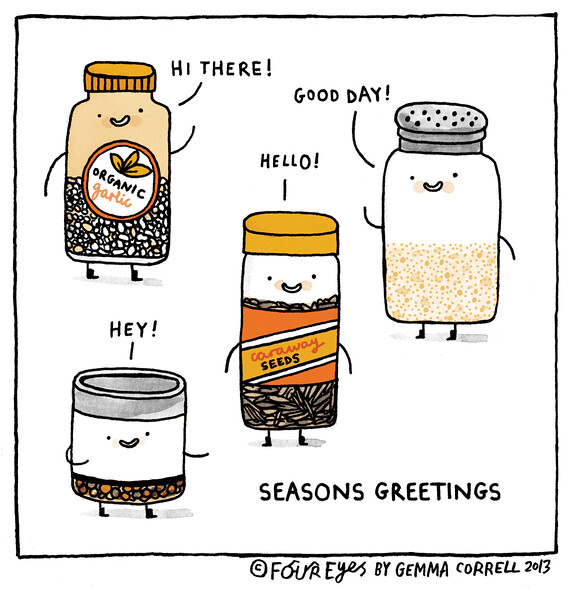6 things Canadians love to do for Christmas
There are a few Christmas traditions you're likely to encounter no matter where you find yourself during the holiday season in Canada.
Officially, Christmas is a religious observance of the birth of Jesus Christ, the central figure of Christianity. But these days, more than half of Canadians celebrate Christmas as a secular holiday.
Canada does not have an official religion, though Christian holidays like Easter and Christmas are observed at the national level and more than half of the population identify as Christian. However, Canadians do not need to be Christian to celebrate Christmas. Religious freedom and plurality are cornerstones of Canadian political culture. As such, many Canadians try to hold on to the spirit of diversity and inclusion, especially during the holiday season.
Without further ado, here are some common Christmas time traditions that you will probably find Canadians doing during the month of December.
Find out if you’re eligible for Canadian immigration
Saying "Merry Christmas," but not in a religious way
"Merry Christmas" is the most common holiday greeting even among those who consider Christmas to be secular. About two thirds of people who say "Merry Christmas" still consider Christmas to be a secular holiday. The term "Happy Holidays" is only used by about a third of Canadians.
You're least likely to hear, "Seasons Greetings" in Canada during the holidays. Maybe because it sounds like seasonings greeting each other.

Asking Santa Claus for presents
You may have heard of Santa Claus, he is the jolly fellow with a red hat and a white beard who brings presents to children at Christmas. Well, Santa's postal address is in Canada— oh yes.
Canada Post offers an annual limited time window for children to send letters to the North Pole to write letters to Santa, and get a reply back before December 25.
Alternatively, you can find Santa at most major shopping centres. Canadians will bring their kids to take a picture with Santa and they also get a chance to talk to him face-to-face.
The last chance to talk to Santa is on Christmas eve. Children typically leave out milk and cookies with a note that may be one final reminder of what's on their wish list, or just to say "Merry Christmas."
Christmas shopping
Canadians love spending money during the holidays.
In 2019, Canadians spent an average of $792 on Christmas gifts, according to the Retail Council of Canada. Canadians will spend about three quarters of their Christmas budget on others, and the rest on something for themselves.
The most common gifts that Canadians will buy for their loved ones fall under consumable categories like food, alcohol, and candy. Clothing and toys come in second and third. The Retail Council expects that, during the pandemic, more money will be spent on personal electronics, health and personal care products, books, music, sports equipment, and furniture.
The pandemic has caused Christmas shopping trends to change. Canadians are buying earlier, and shifting to online shopping. Most Canadians also agree that it is better to shop from Canadian companies this year, to help support local businesses recover from the economic crisis.
Eating too much
Canadians are most likely to have a turkey dinner to celebrate Christmas, though an increasing number are enjoying chicken, or going vegetarian. The typical Christmas meal include the main dish with potatoes, vegetables, cranberries and desserts.
The holiday food Canadians eat at Christmas depends on their culture, and geographic location. The French Canadian Tourtière may replace a holiday turkey, for example. Some Distinctly Canadian desserts like butter tarts, and Nanaimo Bars may also make their way onto the menu.
Eggnog is a festive beverage that starts to hit the selves during the holiday season. Canadians drank 5.2 million litres of eggnog in December 2016. That means about 15 per cent of all Canadians drank one litre of eggnog that year, but if they each shared with four friends then 60 per cent of Canadians got a glass of eggnog in 2016.
Cutting down Christmas trees
There is also a popular tradition of trudging into the wilderness to cut down a tree to bring home. The legality of cutting down trees varies by province, some require permits, and some regions encourage locals to buy from tree sellers. There are also farms available in Canada where you can pay a fee to cut your own Christmas tree. Canadians bought about $77.6 million worth of Christmas trees in 2016.
Some Canadians opt for artificial Christmas trees. About $61 million worth of fake trees were imported into Canada in 2016, most of them from China.
It may not seem very environmentally friendly to cut down trees for the sake of a tradition, but some argue that it is more green to bring home a real balsam fir than to buy a plastic tree. Two studies suggest that real trees generate fewer greenhouse gas emissions per tree than artificial ones. However, that starts to change after people reuse their artificial tree for many years. To minimize the carbon footprint from artificial trees, families should keep the same tree for at least eight years but preferably more than 20 years.
Looking at lights
Like moths, Canadians love lights during the holidays. Most communities have some sort of tradition where Canadians can enjoy Christmas light displays.
Some parks will get decked out with Christmas lights for people to peruse, perhaps with a cup of hot chocolate and marshmallows. Not even a global pandemic could stop some lights festivals, like Illumi in Quebec, from lighting up trees and putting out illuminated decorations.
CP Rail, a Canadian railway company, hosts and annual event where they light up the entire train and host concerts across Canada. The Holiday Train travels from city to city raising money for charity with each musical performance. The annual performance went online during the pandemic.
These are just a couple examples of the traditions that Canadians get behind at Christmas. There are many more that we didn't get into— like Santa Claus Parades— but this should give you a glimpse into what to expect when you get here.
Find out if you’re eligible for Canadian immigration
© CIC News All Rights Reserved. Visit CanadaVisa.com to discover your Canadian immigration options.
- Do you need Canadian immigration assistance? Contact the Contact Cohen Immigration Law firm by completing our form
- Send us your feedback or your non-legal assistance questions by emailing us at media@canadavisa.com






